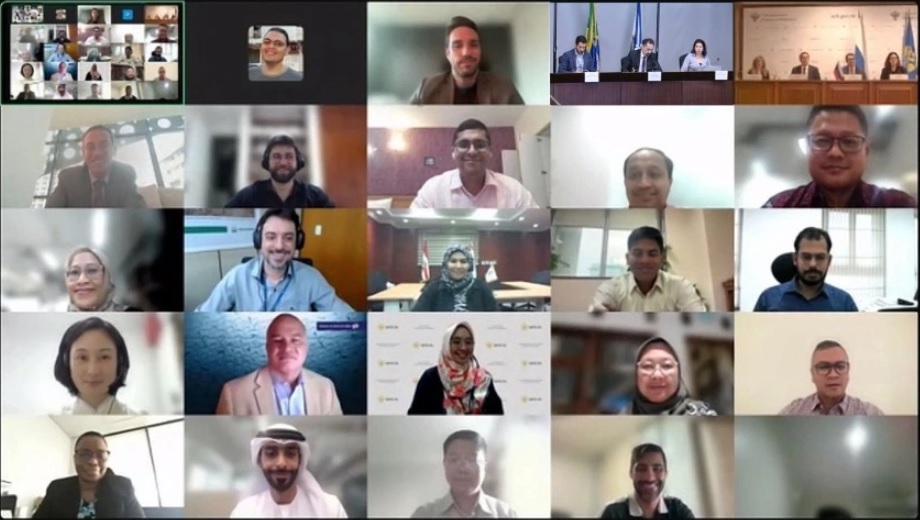TCU Leads BRICS SAIs Seminar on Energy Transition
By Secom / Serint

On June 24, the Brazilian Federal Court of Accounts (TCU) hosted the Virtual Seminar on Energy Transition and Sustainability Issues as part of Brazil’s presidency of the BRICS SAIs in 2025. The videoconference gathered representatives from the Supreme Audit Institutions (SAIs) of BRICS countries to discuss good practices, challenges, and initiatives related to auditing the energy transition.
Participants shared national experiences in auditing renewable energy projects, carbon markets, regulatory frameworks, and public policies related to the energy transition. The presentations highlighted the importance of continuous technical dialogue among SAIs to promote transparency, consistency, and effectiveness in climate finance and energy sector governance.
The TCU opened the seminar by presenting its Energy Transition Practical Guide, developed under its coordination. Representing the Department of Government Audit for Energy and Communications (SecexEnergia), auditor Guilherme Souto emphasized that “the guide is not a prescription, but rather a starting point for dialogue.” He described the framework as a flexible, risk-based tool that can be tailored to each country’s context, structured around four analytical pillars: governance, just and inclusive transition, financing and public policies.
The methodology was designed to address the dual challenge faced by BRICS nations: ensuring energy security while fulfilling climate commitments. The auditor explained that the framework enables end-to-end oversight, from assessing government readiness to measuring the real impact of public action. “Our approach enables a dual analysis: on one hand, we assess the readiness of state structures, such as governance and financing environments; on the other, we measure the maturity and actual impact of public policies,” he stated.
According to Souto, this process helps identify critical gaps, such as the absence of proper monitoring for well-designed policies, and ensures that national targets are supported by effective actions. At the conclusion of the presentation, BRICS partners were invited to contribute to improving the guide, reinforcing its role as a “living document” and potential global reference.
SAIs China, Egypt, Ethiopia, and India shared audit experiences on decentralized solar energy generation. Their findings pointed to reduced CO₂ emissions and stronger renewable energy markets. The event also featured other audit approaches to national energy transition policies, including initiatives like transport electrification systems, green hydrogen programs, and clean energy expansion plans.
Participants also discussed challenges related to financing and infrastructure, emphasizing the importance of strong regulatory frameworks and public-private partnerships as strategies to enable sustainable progress in the energy sector.
The seminar concluded with participants adopting a joint action agenda to strengthen SAI engagement in energy transition. This includes developing unified audit standards for energy projects and financing, improving data-sharing, increasing cooperation via joint audits among BRICS SAIs, and exchanging strategic documents like guides, national plans and audit reports.
International cooperation in focus
The seminar is part of the initiatives led by the TCU under its presidency of the BRICS SAIs 2025 and marked the second virtual meeting hosted by the Court this year. Earlier in April, the TCU organized a discussion on the use of artificial intelligence in the audit context, which resulted in a technical contribution paper from the BRICS SAIs submitted to the Ministry of Foreign Affairs for presentation at the BRICS Summit.
According to Hugo Chudyson, TCU’s Secretary for International Relations, the seminar reaffirms the protagonist of the Brazilian Court in global public audit agendas. “The energy transition is one of the defining challenges of our time. The role of SAIs in auditing sustainable public policies is essential, and events like this consolidate TCU’s position as a technical reference and facilitator among countries of the Global South,” he said.
Additional technical seminars are planned, to be organized by the SAIs of the other BRICS member countries, covering a variety of public audit topics.